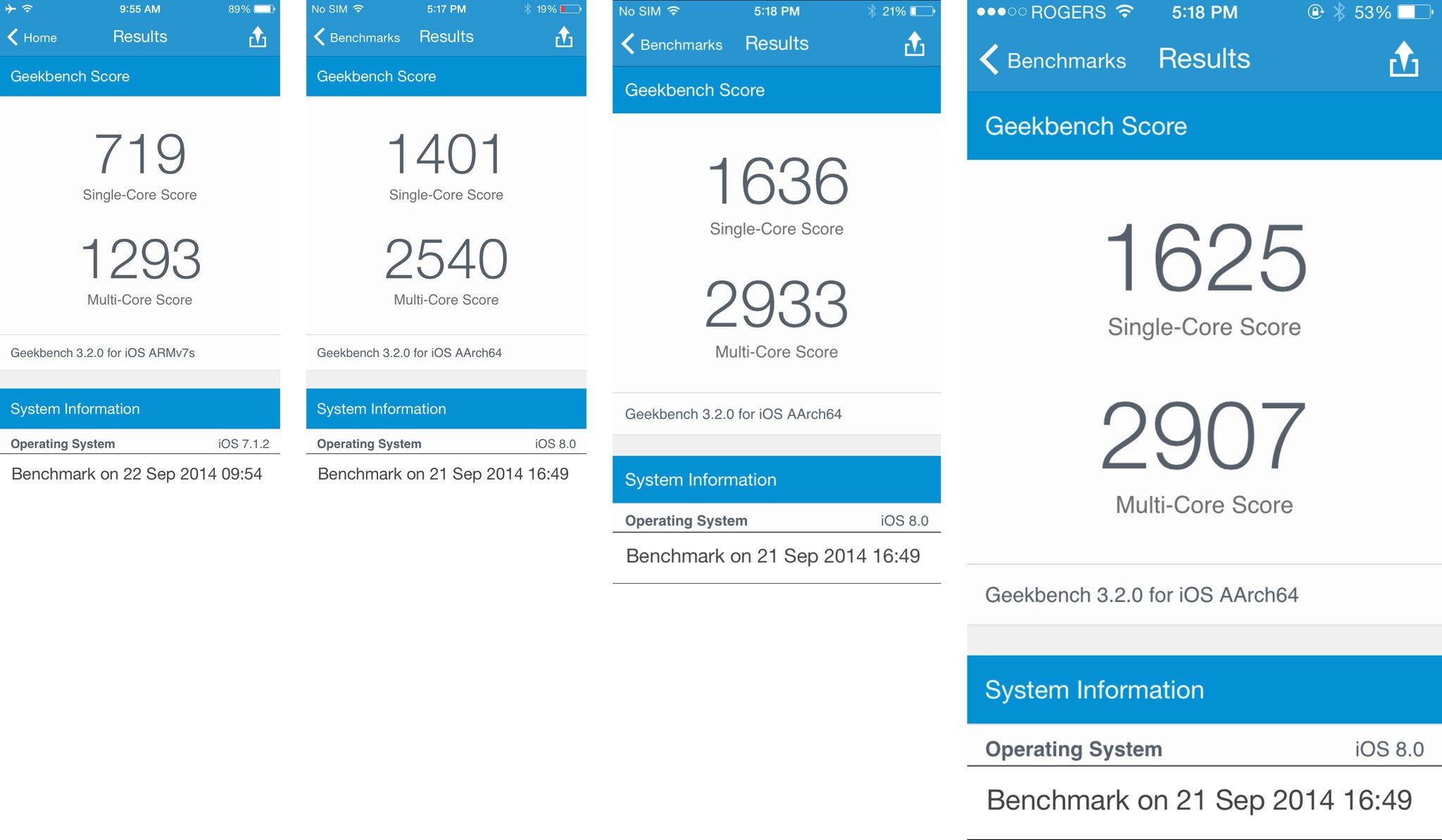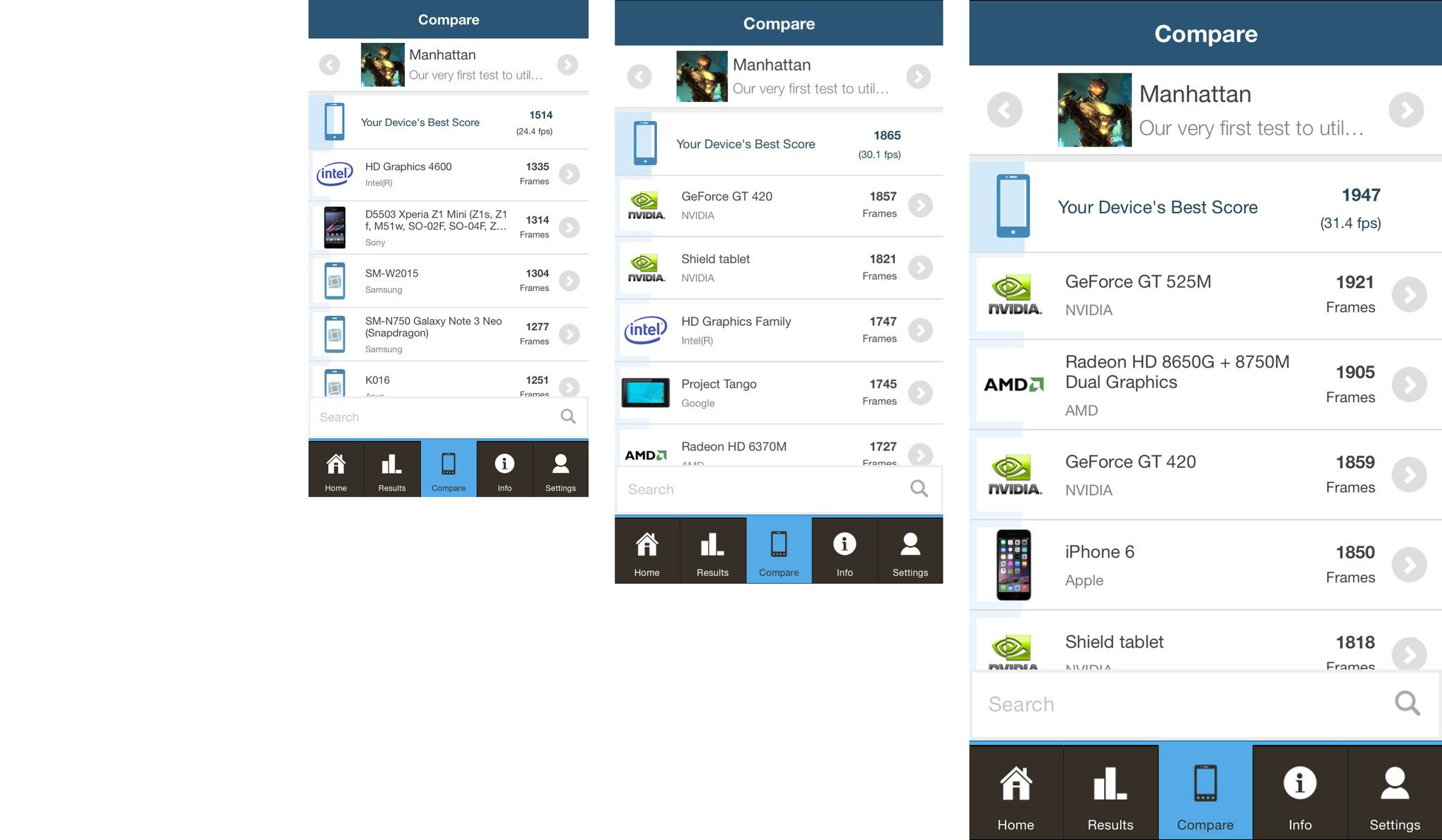iPhone 6 and 6 Plus vs. Samsung, HTC, and LG: Battle of the benchmarks!
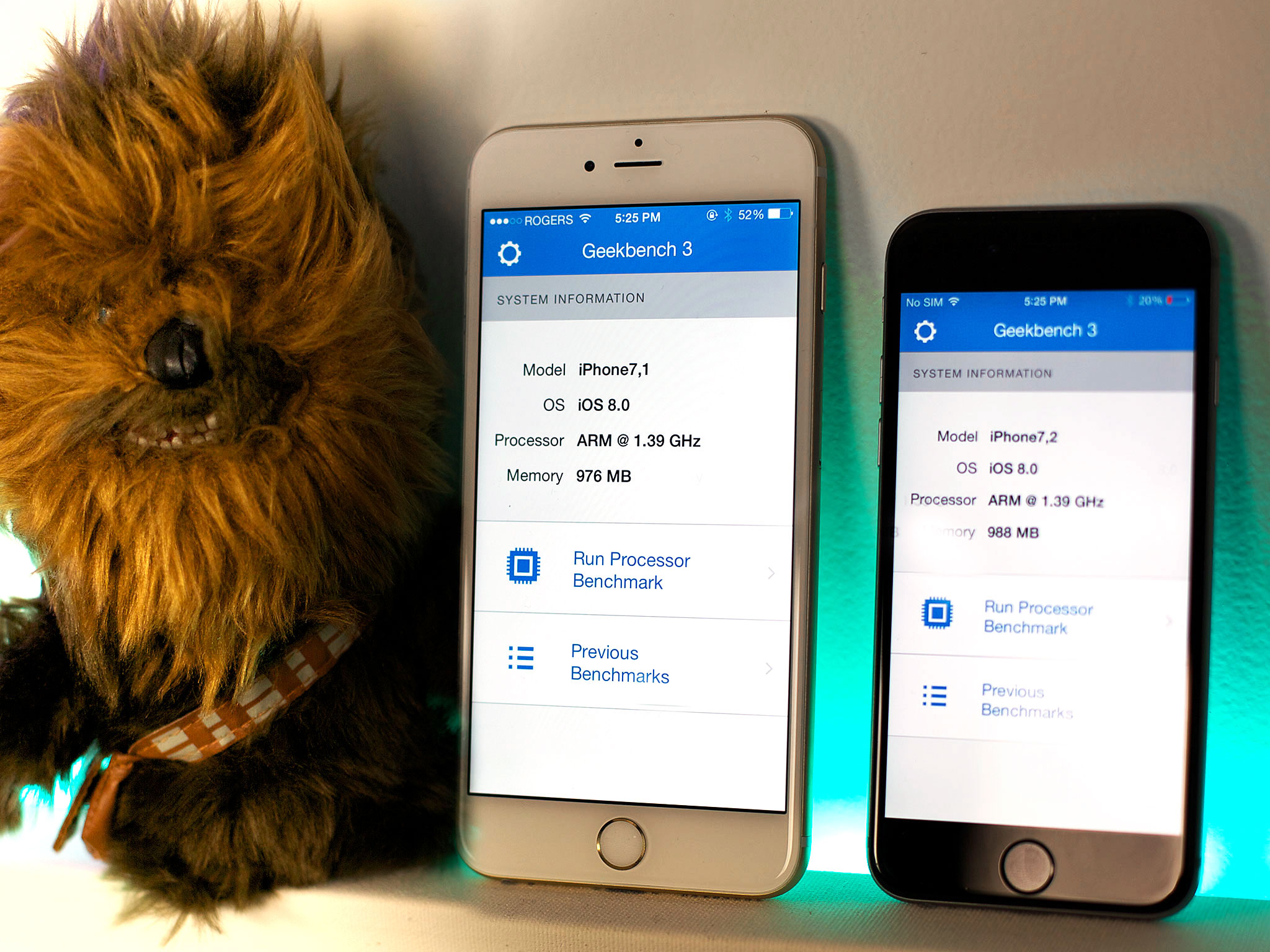
The iPhone 6 and iPhone 6 Plus are here and that means just exactly what you think it means — we're running them through the benchmarks. Rather than simply present you with some drab numbers, however, especially for the new Apple A8 system-on-a-chip (SoC), I reached out to John Poole of Primate Labs, the makers of Geekbench, for his take. The results?
Geekbench 3 shows that the iPhone 6 and iPhone 6 Plus are 15% faster than the iPhone 5s. While this difference isn't as dramatic as the one between iPhone 5s and the iPhone 5 (the 5s is twice as fast as the 5), a large part of last year's difference came from the switch from the 32-bit ARMv7 architecture to the 64-bit ARMv8 architecture.When compared against other flagship handsets like the Samsung Galaxy S 5 or the Motorola Moto X (2014), the iPhone 6 has significantly better single-core performance and comparable multi-core performance.Single-core performance is arguably the most important performance metric for smartphones. Every application will benefit from improved single-core performance while only specialized applications will benefit from improved multi-core performance.
Poole also provided the following comparative analysis:
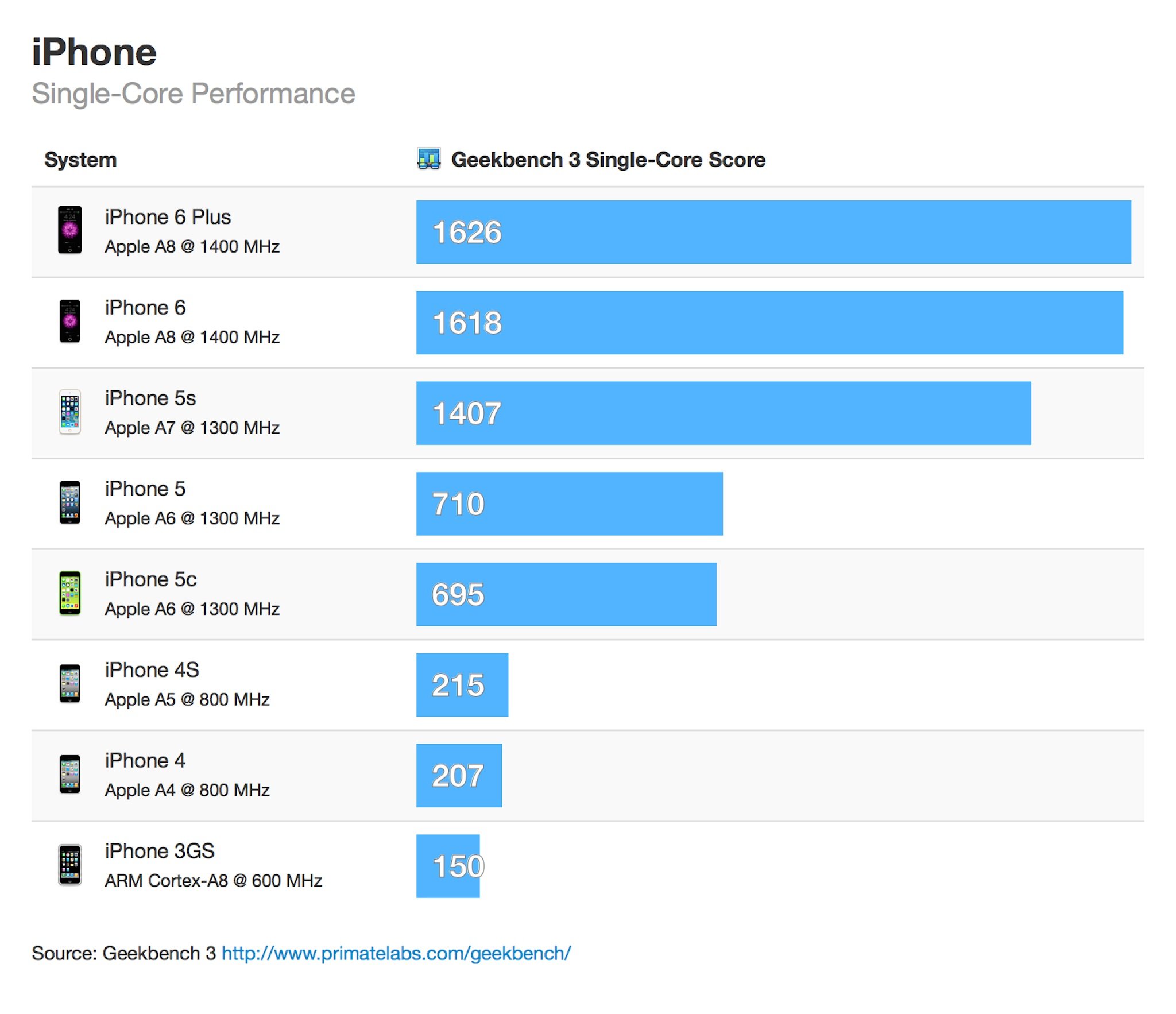
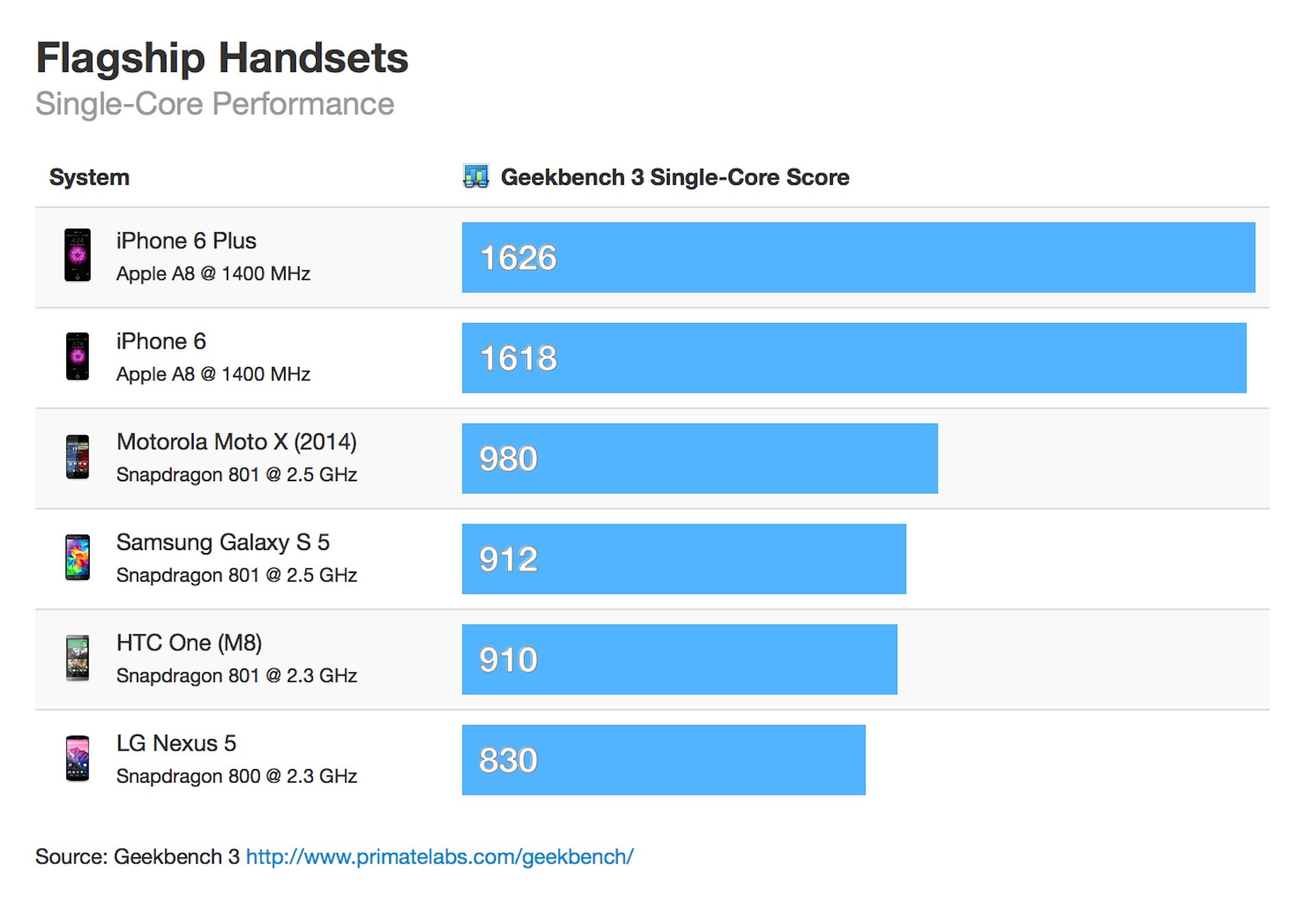
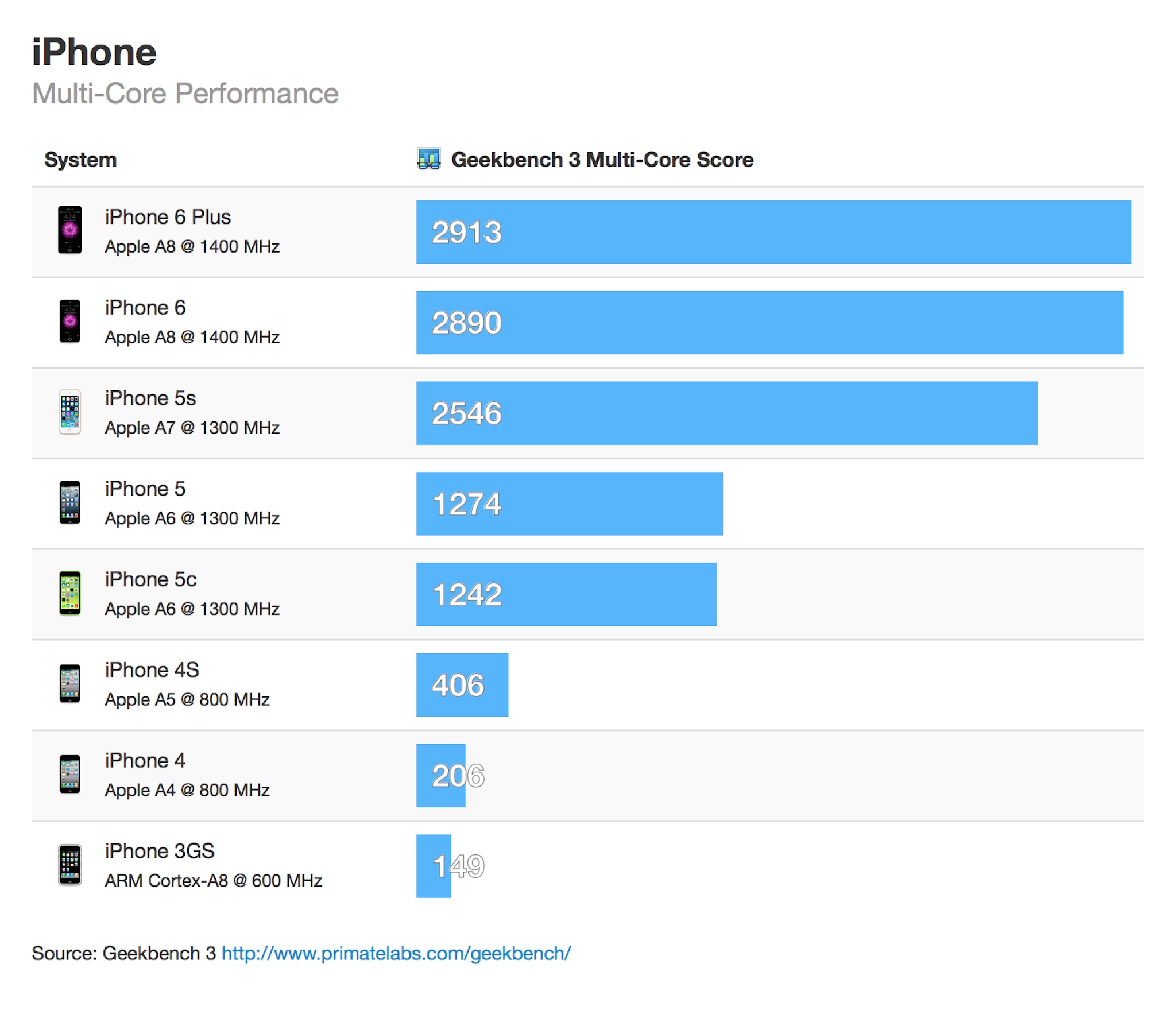
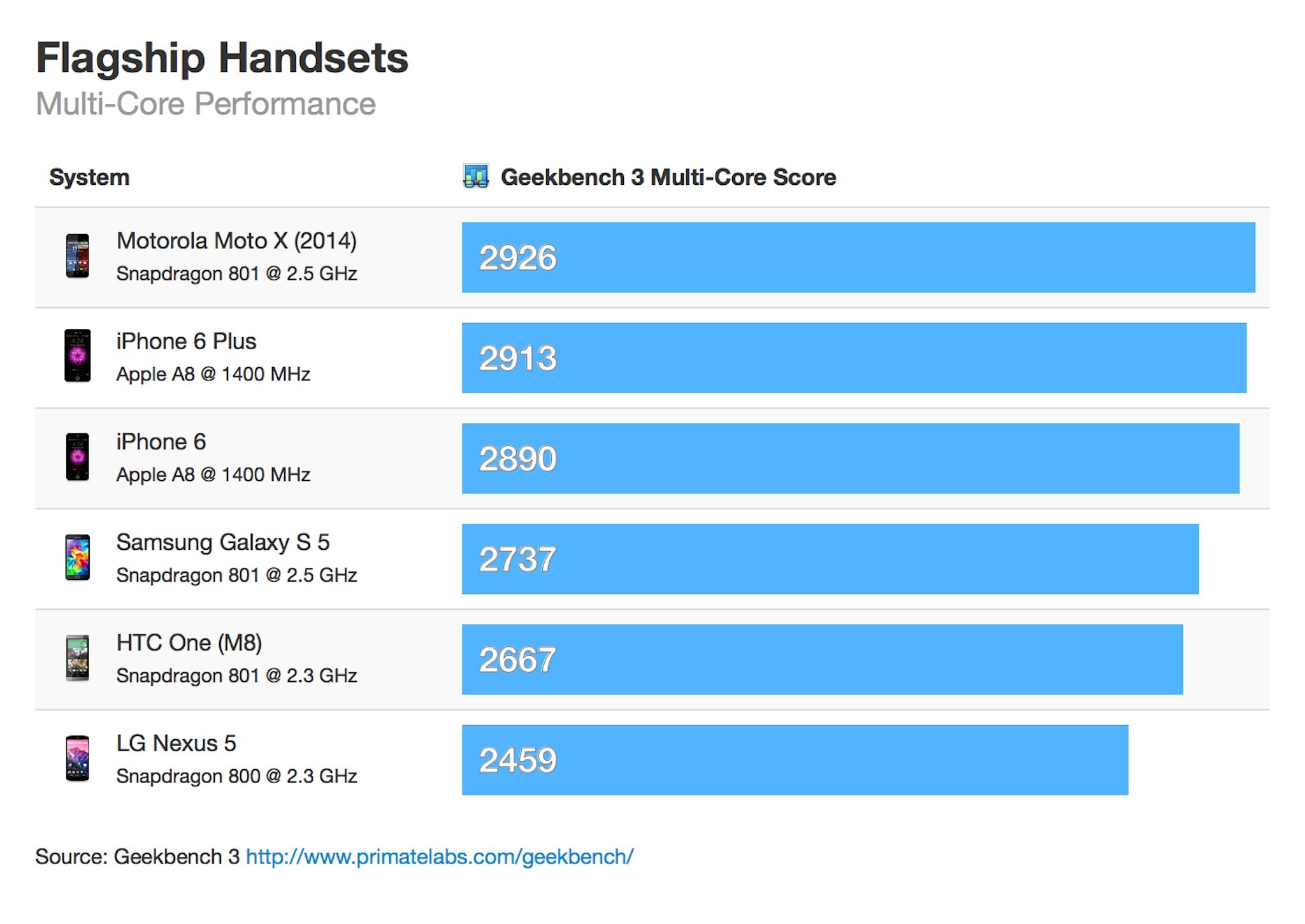
Of course, there's still fun to be had in numbers, so I loaded up Geekbench 3 to test the central processing unit (CPU), the Manhattan test on GFXbench 3 to test to the graphics processing unit (GPU), and SunSpider to test JavaScript performance. iPhone 5 on the left, then iPhone 5s, iPhone 6, and iPhone 6 Plus on the right. (The iPhone 5 can't run Open GL ES 3.0 so I didn't include a GFXbench screenshot of that.)
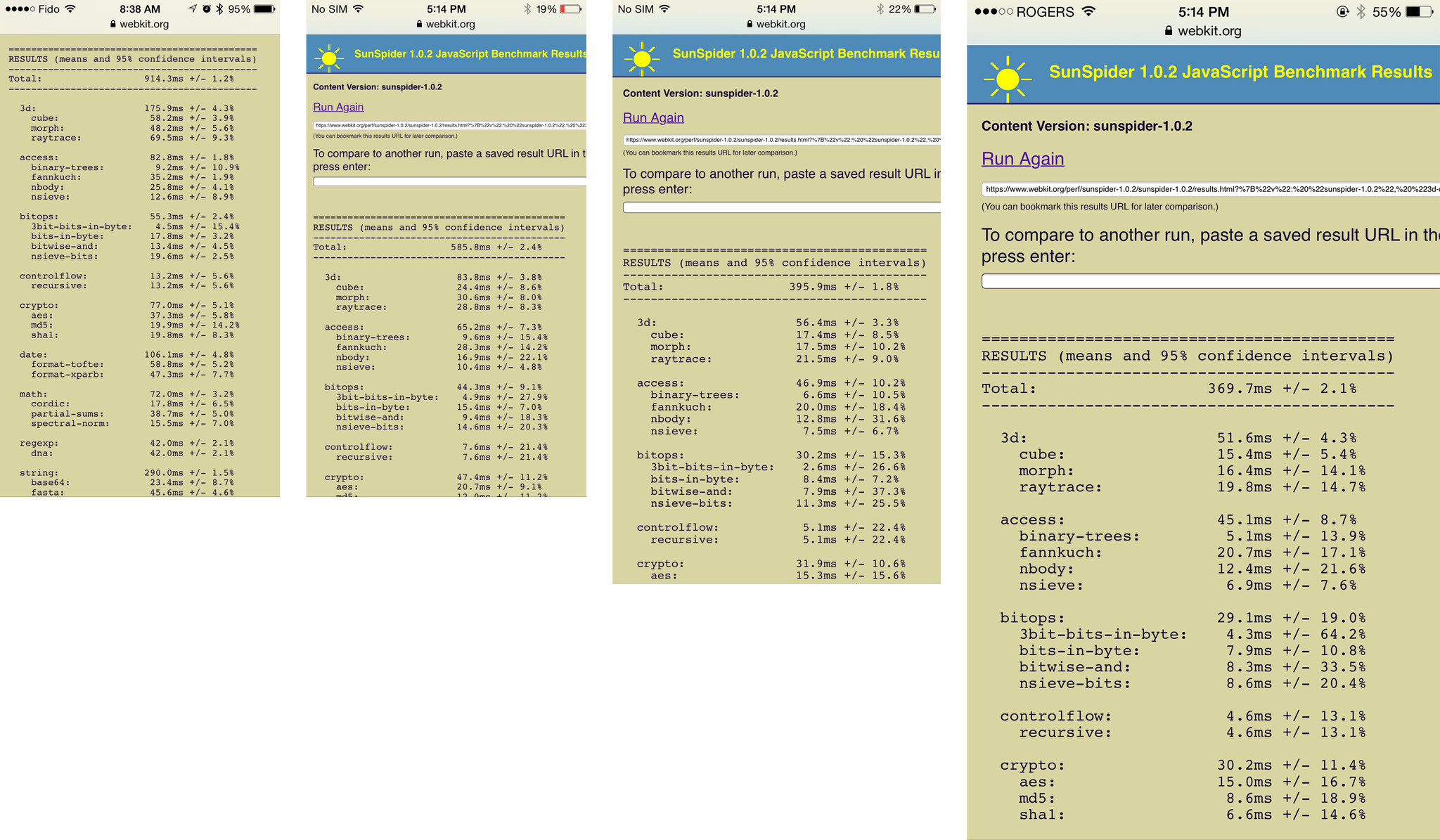
The iPhone 6 Plus has a slight edge over the iPhone 6, but not by much. Perhaps the biggest surprise is how well the iPhone 5s still holds up. Perhaps that's because Apple's second-generation 64-bit core is just that, 2nd generation, and it's focused on things beyond raw power, like power efficiency.
Now, these tests are by no means comprehensive nor definitive. There are numerous other tests that can be run, and how a devices performs and responds to you, in your hand, day in, day it, is by far the most important metric. Benchmarks are just what they say they are — a standard point of reference.
If you've upgraded to an iPhone 6 or iPhone 6 Plus, let me know — how's your performance?
iMore offers spot-on advice and guidance from our team of experts, with decades of Apple device experience to lean on. Learn more with iMore!

Rene Ritchie is one of the most respected Apple analysts in the business, reaching a combined audience of over 40 million readers a month. His YouTube channel, Vector, has over 90 thousand subscribers and 14 million views and his podcasts, including Debug, have been downloaded over 20 million times. He also regularly co-hosts MacBreak Weekly for the TWiT network and co-hosted CES Live! and Talk Mobile. Based in Montreal, Rene is a former director of product marketing, web developer, and graphic designer. He's authored several books and appeared on numerous television and radio segments to discuss Apple and the technology industry. When not working, he likes to cook, grapple, and spend time with his friends and family.
